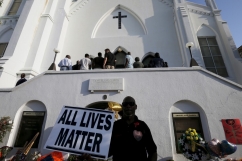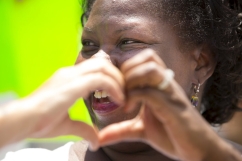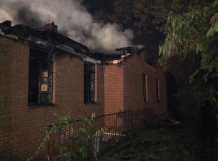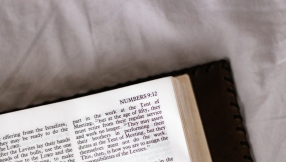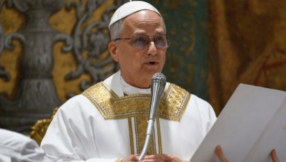An African-American church in South Carolina that was burned down by the Ku Klux Klan 20 years ago was the scene of another blaze on Tuesday, officials and a newspaper said, though the cause was not immediately clear.
The fire at Mount Zion African Methodist Episcopal Church in the city of Greeleyville comes amid a rash of fires that have erupted at black churches across the US south, at least two of which have already been declared as deliberate.
It also comes roughly two weeks after a white gunman opened fire inside the historic Emanuel African Methodist Episcopal Church in Charleston, 65 miles (105 km) away, killing nine people during a Bible study. All the victims were black.
The US Bureau of Alcohol, Tobacco, Firearms and Explosives said in a statement online it was on the scene of the Greeleyville fire.
There were no immediate reports of injuries.
Mark Keel, chief of the State Law Enforcement Division, told the Post and Courier newspaper that the cause of the blaze could not be determined until the flames were out.
He told the newspaper that while lightning from a recent storm system in the area may have sparked the blaze, he was troubled by the recent spate of church fires.
"Certainly, I think we all are concerned about those things," he told the newspaper.
The Clarendon County Fire Department said in a statement that the fire was under control. A picture the agency posted on Twitter showed flames roaring inside the church, behind an exterior wall adorned with a cross.
Federal investigators have said they have so far found no link between the fires at predominantly black churches across the southern United States since the shooting, and none have been labeled hate crimes.
Tuesday's fire would be at least the seventh blaze since the shooting, an attack that stoked an ongoing national outcry over race relations following several high-profile police killings of unarmed African-American men over the past year.
Former President Bill Clinton spoke at the dedication of the Mount Zion church in June 1996 - a year after the arson - which came amid some 670 arsons, bombings or attempted bombings at mostly African-American churches in the 1990s.
"You think about what happened 90 years ago ... people might have expected things like a church bombing. That was the time of Jim Crow, and there were evening lynchings in the South," Clinton said then. "We know that we're not going back to those dark days, but we are now reminded that our job is not done."










